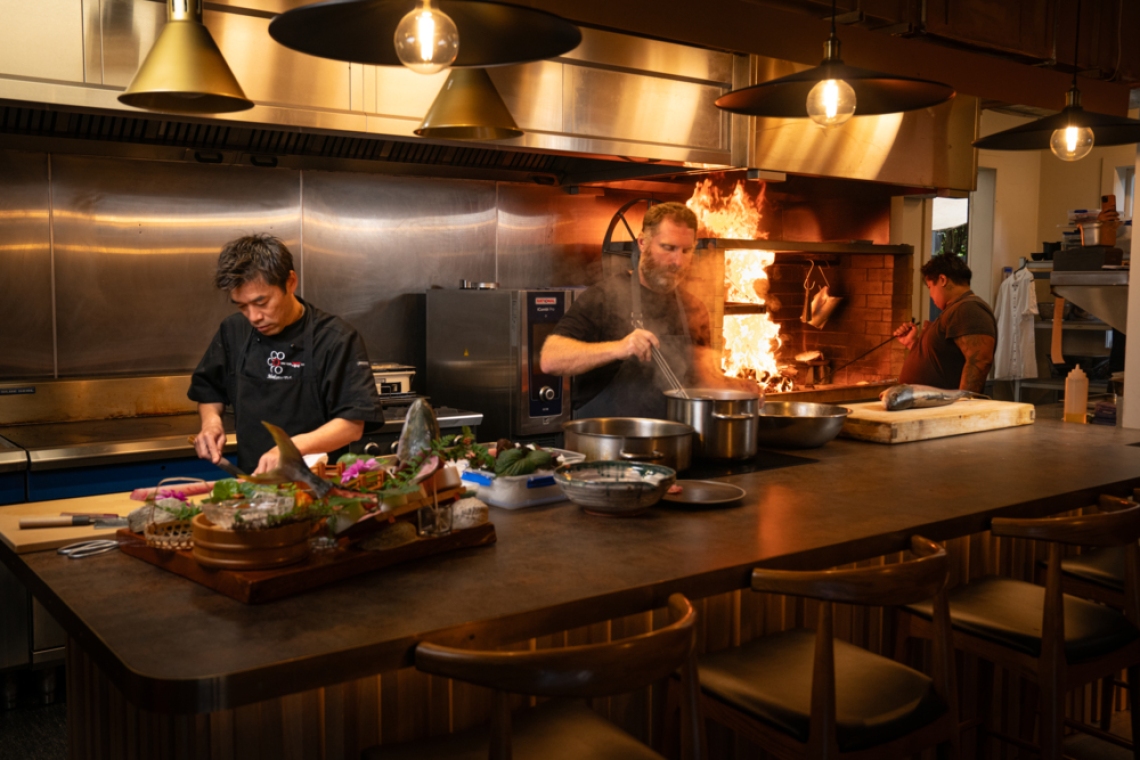Select markets have been getting a taste of our premium Haku kingfish as production ramps up from NIWA’s Northland Aquaculture Centre.
The facility was officially opened in August last year by Whangārei MP and now Science, Innovation and Technology Minister Dr Shane Reti. The experimental farm is designed to establish the commercial viability of on-land aquaculture and is a joint venture with Northland Regional Council.
The farm features eight 350,000 litre tanks as part of its experimental Recirculating Aquaculture System (RAS), which offers superior environmental and economic performance, and full control over all aspects of production. The current market focus for Haku kingfish is food suppliers and high-end restaurants.
Product development manager Jeremy Singleton says NIWA has built a very loyal customer base excited for the future.
“Haku is a premium product produced at smaller volumes than a lot of the competition, so we’ve been testing the market within New Zealand, Australia and most recently in the US. We’ve proven what we can do with our initial supply, and we are building on that as we build the brand, and explore new markets and approaches.”
Singleton recently asked three of New Zealand’s top chefs, Neil Sapitula, Cory Campbell and Makoto Tokuyama, to create some Haku kingfish dishes at Rothko Restaurant in Matakana.
“We asked them to create dishes that used the whole fish, but also showcased its versatility. Their creations were superb, from a Japanese style whole fish sashimi to a salt bake with a banquet style presentation. And we even brought an aged-fish component in there to really show what you can do with it.”
As demand increases, the aim is to supply sufficient product from the RAS to build interest and encourage further development.
The farm at Ruakākā is on track to produce 400 tonnes of kingfish a year, building up to 600 tonnes annually over the coming years.
RAS Manager Amanda Clearly says production could ramp up much higher in the hands of an independent operator, conducting business from part of NIWA’s current site and reaching upwards of 3,000 tonnes.
“We are amassing the technical knowledge, learning how to use things at scale, so we can pass it on to commercial players using RAS to produce kingfish themselves. We would still maintain supply of broodstock, hatchery and juveniles to support these ventures.”
The development opportunities also extend far beyond Northland.
“RAS is adaptable to new locations and species,” Cleary says. “We would like to see farms popping up around the country, boosting the regions who recognise the lucrative yet environmentally sustainable farming methods demonstrated. Applied science helps New Zealand grow, particularly in the regions, and we have a focus on bringing people along as we grow, especially young people.”



